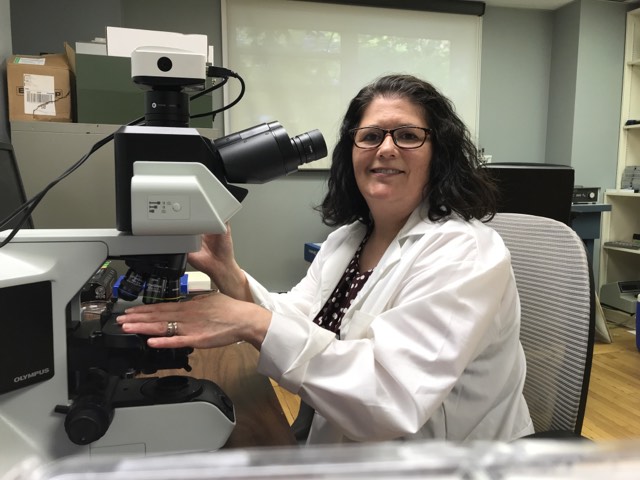What do you love most about your profession? Why did you choose this career?
I love that I am continually learning and continually challenged. The ocean has a vast wealth of knowledge, both known and yet to be discovered. I love that my job allows me to continue being the explorer I was as a child.
When did you realize you wanted to work in STEM or Skilled Trades?
I have wanted to be a biologist since before I even knew that is what the profession is called. I remember for career day in grade 6 or 7 I borrowed a white nurse's uniform from my Aunt and put a sticker on the lapel that said "Plant and animal researcher." I always enjoyed nature shows, especially anything with Sir David Attenborough, and read any science book I could get my hands on. In high school I took every science course offered and found that Biology and Chemistry were the two that both interested and challenged me.
Why do we need more women in STEM and Skilled Trades?
Women bring a unique perspective, a different approach to problem solving that is critical in both STEM and skilled trade fields. Women are an often untapped source of knowledge and talent. We need that knowledge, talent, fresh ideas, and creativity to solve the challenges that face us in these fields today.
What does your typical workday involve? Can you work remotely? (indoors/outdoors, office/plant, travel time, teamwork/solo work)?
As an Aquatic Science Technician for the Aquaculture, Biotechnology, and Aquatic Animal Health section of the science branch of DFO in St. John’s, NL, I work with a team of research scientists, biologists and technicians to conduct research to support the management of sustainable aquaculture. I am involved in both field and laboratory research activities. A typical day in the field involves the collection of oceanographic and biological data, and samples, from finfish and mussel aquaculture sites. A typical day in the lab involves the application of molecular biology, chemistry, and histology techniques to analyze samples taken in the field or as part of a laboratory experiment.
Does your work make a difference in people’s lives and the world?
As the world's population grows we continue to rely heavily on oceans to help sustain our basic needs. With increased demand for food, and stresses to aquatic ecocosystems from marine traffic, pollution, and climate change, building upon our knowledge of the ocean and how our daily activities affect the creatures living there becomes increasingly more important. My work at Fisheries and Oceans Canada helps to ensure healthy and sustainable aquatic ecosystems.
What do you do for fun? What are some of your hobbies/activities?
I am an avid gardener. I am either working in the garden or planning my garden most of the year. I also love dancing. I have been taking fusion bellydance classes for about 10 years now and have also dabbled in hip hop and ballroom dancing. I volunteer as a coach for Special Olympics Newfoundland and Labrador. Interacting with the athletes and seeing how hardworking and enthusastic they all are brightens my day.
Tell us about some great organizations or programs that students might want to get involved in!
Nature Newfoundland and Labrador. They offer a $1000 Scholarship each year to a high school student whose volunteer activities benefits nature in our province. .


